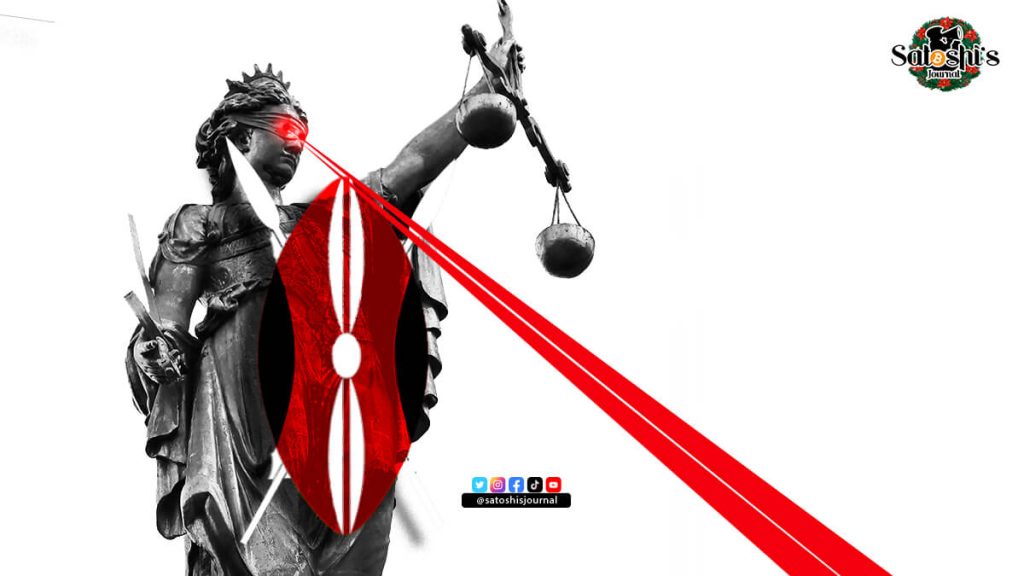I’m a lawyer and businesswoman living and working in Eastern Africa. I have ten years of experience understanding and supporting businesses operating in Africa. I began my career in computer programming but soon pivoted into law. I started my legal career in human rights and international law but now work in commercial law.
I advise clients on how to set up and run a business in Kenya, access capital, access local markets, supply chains, and navigate the regulatory environment. Although I have a broad clientele, I major in companies in the technology (including FinTech) and energy industries, and I also work in infrastructure financing in Africa. My experience on the ground has allowed me to see firsthand where the main points in Africa are, and poverty is at the heart of it. I have also had a front-row seat to the financial revolution that happened through the innovation of mobile money in Kenya. Today, we can see what mobile money has solved for us and what it has not solved.
When I came across Bitcoin, I was attracted to its decentralized nature and the fact that it offers the promise of lowered costs of transactions. Expensive fees are a key pain point in Africa, and some estimates put the cost of transactions at around $ 5 billion yearly. Significantly lowering transaction fees and times will free up resources to be invested in critical areas.
For example, remittances are a key source of financing and poverty alleviation. Lowering the cost of remittances allows millions more in value to be invested in either Africa or the diaspora.
Moreover, as much of my work and passion is in financing critical infrastructure, I’m learning from El Salvador and how they deployed Bitcoin as legal tender. I truly think the technology behind Bitcoin can enable us to access “trapped” capital in Africa by both lowering the costs of transactions and also enabling transactions at nominal value. This has proven to be a workable solution for MPESA and local banks like Equity Bank, and Bitcoin can lower costs much more than Safaricom or Equity Bank can.
As a continent, we have come from far. Today’s business landscape is vastly better than when I was just starting my career. I can see the progress made and say that some negative views of the continent and the risks of doing business here are outdated and exaggerated. There are vast opportunities on the continent with the emerging middle class and the continued progress to liberalize trade.
One progress I am keen on is the creation of a common African market through AfCFTA (African Continental Free Trade Area). Lowering barriers to trade, including tariffs, will enable intra-African trade in an unprecedented manner and unlock what some estimate to be a $ 3 trillion market. Yet, in many cases, development is leaving many behind. As a continent, we lack basic infrastructure in many cases; thus, the state remains a key actor in Africa’s development, as capital to finance larger projects is often only available through the sovereign avenue. These centralized finance models put all our eggs in the government’s and the international community’s baskets.
For some odd purpose, it means that corruption or mismanagement at the government level robs Africans of access to life-saving services and products. Corruption and mismanagement are rife and we lack robust systems to counter them.We are left in a toxic debt cycle.
The time has come to adopt a different approach. One centered on communities that enable communities to steer their destinies in a manner that serves them best. And here is where Bitcoin serves us in Africa the most. A self-sovereign, low-transaction-cost money can enable the least of us to begin to navigate our way out of poverty.
It gives agency and power back to the ordinary citizen, which the current system takes away. Africa is at the cusp of a revolution, and Bitcoin is at the heart of it. I’m honored to work with Satoshi’s Journal, a convener of the Bitcoin space in Africa. Satoshi’s Journal does not compete but is committed to being collaborative in work undertaken in the African continent to enable Bitcoin adoption. We are eager to showcase and champion all the entrepreneurs, activists, policy, everyone in the ecosystem, and the customers and their stories.
We are weaving together a beautiful tale with Bitcoin in Africa, one for the history books, and Satoshi’s Journal will be here to tell it for posterity.
This is a guest post by Eva Kamani. You can follow him on Twitter @Eva_Kimani_. Opinions expressed are entirely their own and do not necessarily reflect those of Satoshi’s Journal or Satoshi’s Entertainment Company.

